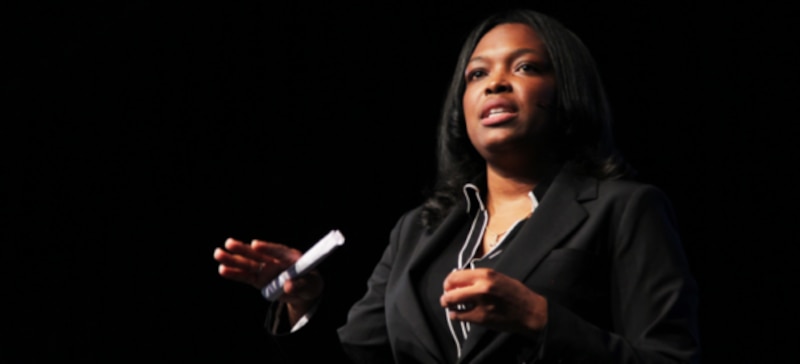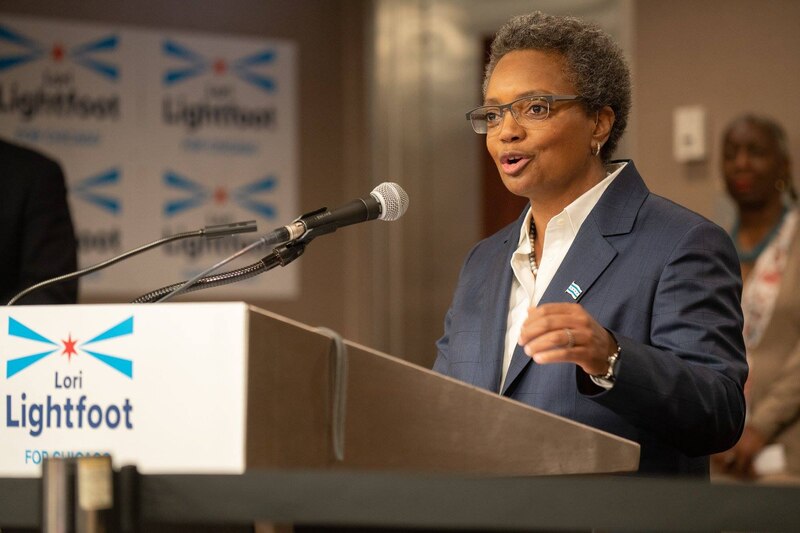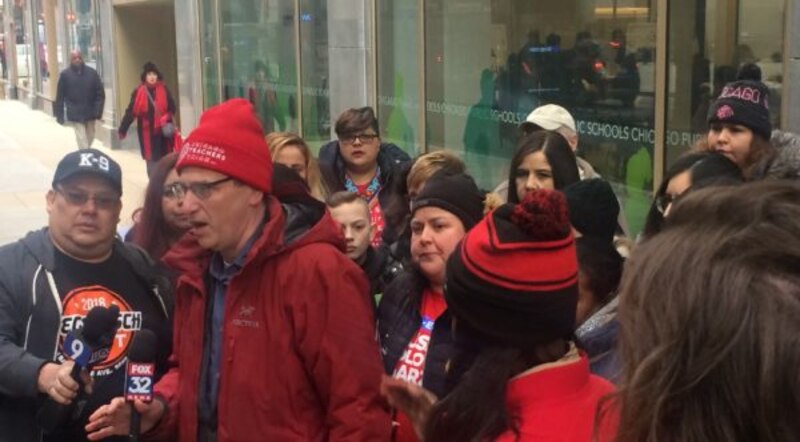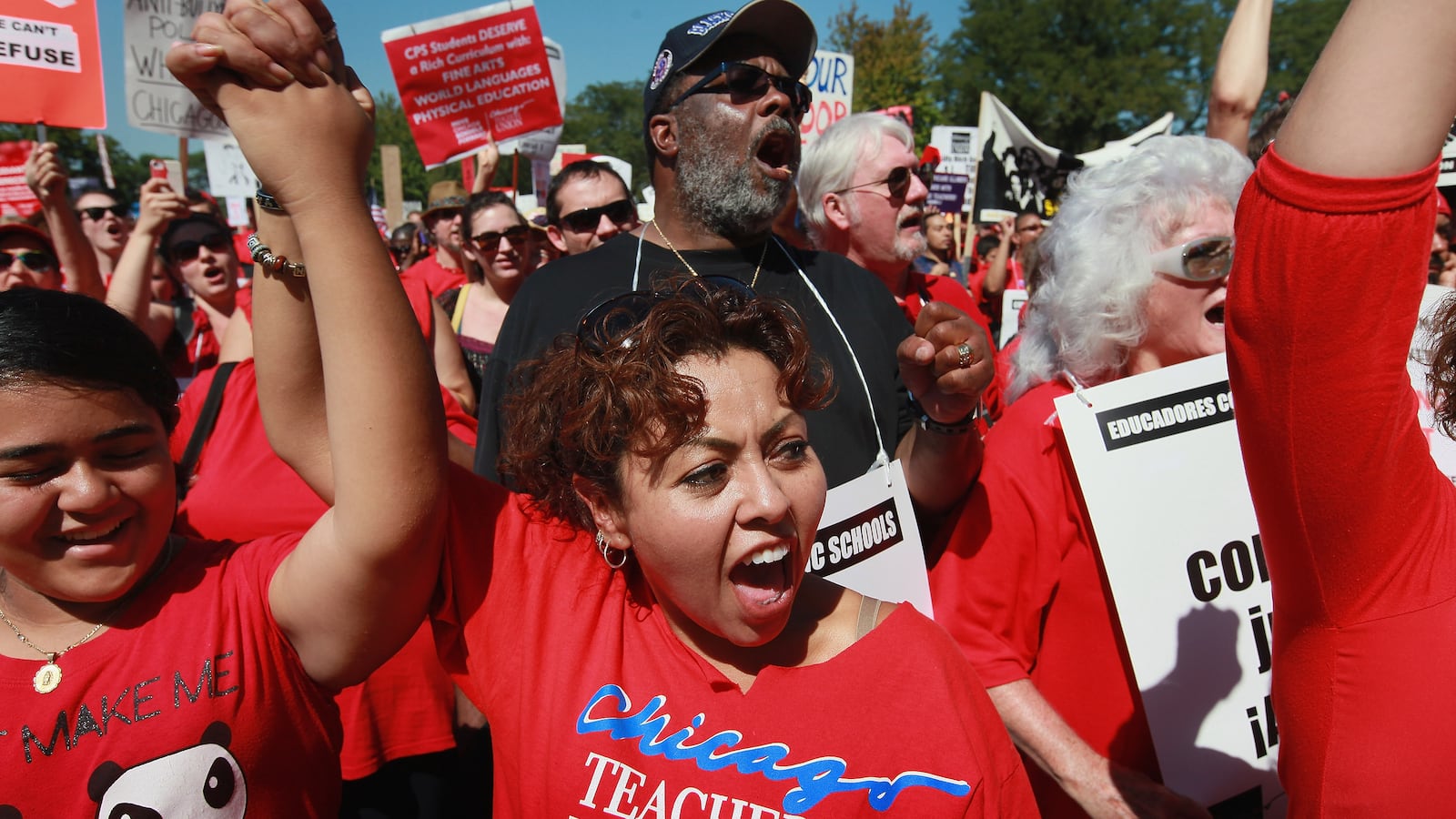The Chicago Teachers Union, eager to push ahead with bargaining now that Lori Lightfoot will be Chicago’s next mayor, already has hinted at a strike early next school year — but negotiations can’t gain momentum until Lightfoot decides whether she’ll keep Janice Jackson or name a new schools chief.
Lightfoot, who trounced union-backed candidate Toni Preckwinkle 3-to-1 in a runoff election Tuesday, faces a plethora of choices over the next four weeks before she’s sworn in, from building her transition team to deciding who she wants leading city departments and agencies, including Chicago Public Schools, which serves 361,000 students.
Related: Letters to Lori Lightfoot: Tell Chicago’s mayor-elect about your school
Lightfoot has remained non-committal about Jackson, but the June 30 expiration of the teachers’ contract puts additional pressure on the mayor-elect to make a decision about who Lightfoot wants leading schools.
“You don’t want to wait too long [on a decision], because the school year is almost over, and you want to have something in place well before September,” said Andrea Kayne, a professor of educational leadership with DePaul University College of Education. “Lightfoot will need to educate herself — but act quickly — because if she does replace Janice, then she has to pick a new person, and they have to get their team in place.”
The union delivered 75 contract demands to the city in January after a rally outside the office of Mayor Rahm Emanuel. The list included increasing pay and benefits, decreasing class sizes, and adding more black and brown teachers, more social workers and librarians, and affordable housing for families and employees.
The union is seeking a 5 percent raise — but school-by-school budgets released last week factored in half that for next school year.
That will be a sticking point, union President Jesse Sharkey said.
Related: Lori Lightfoot is Chicago’s next mayor — which means big changes are coming to schools
School district spokesman Michael Passman wouldn’t comment on the district’s bargaining agenda or response so far to union demands. Instead, he emailed Chalkbeat a statement stressing that Jackson and her No. 2, LaTanya McDade, “are two lifelong Chicago educators who understand the supports our teachers need to be successful.”
“The district is committed to working toward a contract that rewards educators for their service, supports the best interests of families, and enables CPS to build on its record-setting academic progress,” the statement said.

The union would like to set the table for more formal talks in May, negotiate through the summer and pledges to strike in the early fall if necessary.
Related: With Toni Preckwinkle trailing in polls, Chicago Teachers Union looks to critical battles ahead
There are reasons Lightfoot would want to stick to a fast timeline. Bargaining can be an expensive process if it’s drawn out. In 2015-16, the city paid nearly $1 million to the Franczek P.C. law firm to help handle contract negotiations that nearly devolved into a strike.
Union leadership might also want to make some progress at the bargaining table sooner to better position itself to its own membership.
The union faces its own deadline of sorts: Its leadership elections are happening the same week as the inauguration. Members First, a caucus of challengers running to replace the current union leadership, has complained about the time and resources the union spends on what critics view as non-school issues and political causes, and is vying to focus the union solely on protecting members and bargaining for better wages, benefits, and working conditions.
Sharkey brushed off questions about the challenge. But he insisted that the union would present a unified front and push for a better contract regardless of the outcome of its elections.
Related: Chicago Teachers Union talks strike on two fronts
Negotiations with the city aren’t the union’s only focus. It is also pushing a state bill to strengthen bargaining rights over issues like class size and staffing, and is negotiating with 13 charter and contract schools, several of whose labor units have threatened strikes as well. The union has led strikes against schools in two charter networks this school year, including the first charter strike in the nation’s history.
“She’s our boss”

Despite the strike threat, the union already has softened its message toward Lightfoot. It has issued a statement striking a more conciliatory tone, after criticizing her as a corporate lawyer backed by wealthy interests, now saying that Chicagoans voted for her “out of a desire for bold and progressive ideas.”
Still, the union has pledged to fight aggressively for a contract and costly improvements at the district.
“She’s our boss, and we’re a labor union — it’s that simple,” union President Jesse Sharkey told Chalkbeat this week.

Martin Malin, who mediated the last round of negotiations during 2015-16, expects contract talks to pick up steam in the summer.
At this stage, he said there might be “little issues” that the union’s and district’s negotiating teams can discuss “that will be there regardless of whatever policy direction the new mayor goes in,” but that it’s unlikely the two sides would begin wrestling with what he called “strike issues.”
“The parties are really not in a position to think about meaningful negotiations until the new mayor takes office, until she gets her leadership team in place, until policy decisions are made by the new mayor and her leadership team,” said Malin, a law professor at Chicago-Kent College of Law and director of the Institute for Law and the Workplace. “There’s no reason for them to be talking about anything of ultimate significance right now.”
Related: Chicago schools chief Janice Jackson on her first year: ‘I don’t make decisions based on fear’
Experts, like the union, seem hopeful that contract talks won’t descend into the vitriol that characterized the 2012 teacher strike, widely seen as a misstep by Emanuel in his first term. The mayor lobbied successfully in Springfield ahead of negotiations for a law that made it harder for teachers to authorize a strike, and had tough words for the union in the media and behind closed doors during the conflict. But the union ultimately won key concessions — and enjoyed overwhelming public support.
Observers say Lightfoot could learn from the difference between how Emanuel handled the two sets of negotiations.
“If you contrast the public approach of the mayor in 2012, and his approach in the 2016 negotiations, you’ll see he was a lot calmer,” Malin said.
Kayne said a more cordial tone in negotiations is in the best interest of Chicago students, that “it’s not about giving in to the union.”
“It’s about having a good, working, constructive relationship,” she said.
The union is also backing legislation that could change in its relationship with the mayor’s office.
The Illinois House on Thursday overwhelmingly passed a bill to take away the mayor’s power to choose Chicago school board members and instead establish an elected school board, a change supported by Lightfoot during her campaign. The bill still has to pass the Illinois Senate and be signed into law by the governor.


